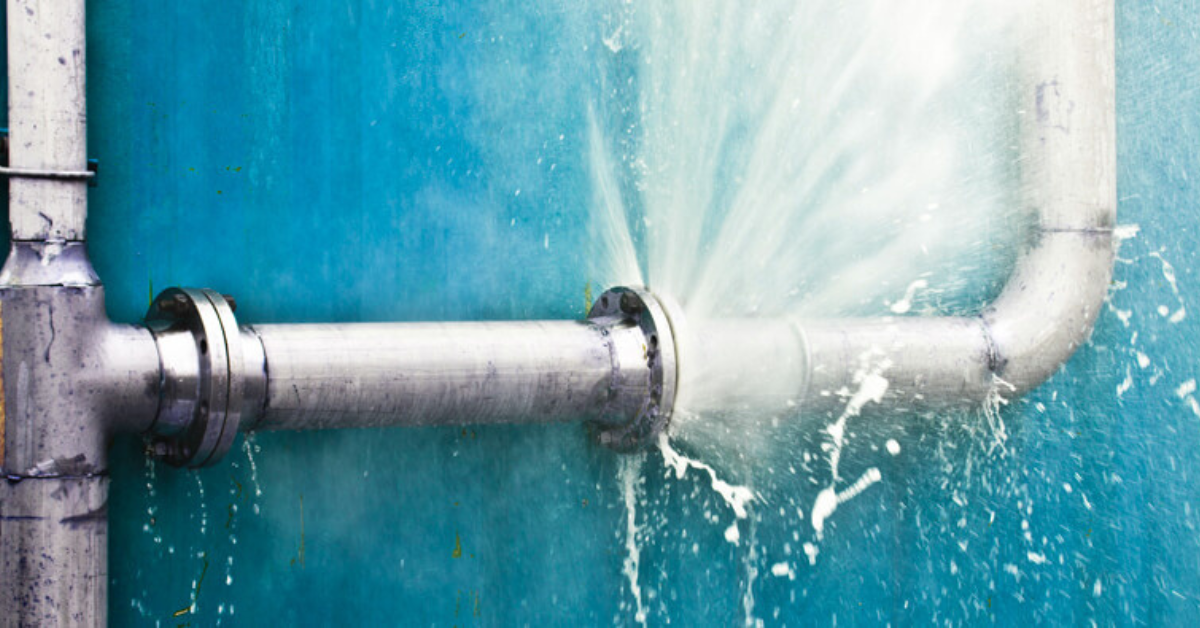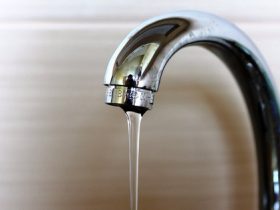Approaches to Deal with Low Water Pressure in Your Home
Approaches to Deal with Low Water Pressure in Your Home
Blog Article
Do you find yourself searching for suggestions around 10 Reasons for Low Water Pressure in Your House?

Low water pressure in your home can be a discouraging trouble, impacting every little thing from showering to washing dishes. If you're experiencing weak water flow, there are several feasible reasons and remedies to check out. In this guide, we'll talk about common reasons for low tide pressure and functional steps to address the issue effectively.
Intro to Low Water Stress
Low water pressure occurs when the circulation of water from your taps, showers, and various other fixtures is weak than normal. This can make everyday tasks more difficult and much less efficient. Recognizing the root causes of low water pressure is essential to locating the best option.
Typical Reasons For Low Water Pressure
Pipe Obstructions
Over time, pipes can end up being obstructed with mineral deposits, debris, or particles, limiting the flow of water. This is a typical concern in older homes with galvanized steel pipelines.
Deterioration
Deterioration within pipelines can cause leaks and minimized water pressure. Corrosion build-up can restrict water circulation, especially in maturing plumbing systems.
Faulty Stress Regulators
Pressure regulators are accountable for preserving consistent water pressure in your home. If they malfunction, it can result in low water pressure or uneven flow throughout the house.
Municipal Water Supply Issues
Sometimes, the trouble lies outside your home. Community supply of water issues, such as main line leakages or maintenance work, can temporarily lower water stress in your area.
How to Detect Low Water Pressure
Examining Faucets and Fixtures
Start by testing the water stress at different faucets and components throughout your home. If the issue is separated to specific areas, it might indicate local problems.
Checking Pipes
Inspect noticeable pipelines for signs of leaks, rust, or obstructions. Pay attention to any uncommon noises, such as banging or rattling pipes, which could suggest concerns within the plumbing system.
Consulting with a Plumber
If you're unable to determine the reason for low tide stress, consider hiring a professional plumber to carry out an extensive inspection. They can determine underlying problems and recommend proper services.
Do It Yourself Solutions to Take Care Of Low Tide Pressure
Cleaning Up Aerators and Showerheads
Natural resources can accumulate in aerators and showerheads, minimizing water circulation. Remove and cleanse these parts frequently to boost water stress.
Flushing Hot Water Heater
Sediment build-up in the water heater can limit flow and minimize efficiency. Purging the tank regularly aids remove sediment and keep optimum performance.
Checking Pressure Regulatory Authority
Guarantee that the pressure regulator is functioning correctly. Changing or changing the regulator can aid restore correct water stress throughout your home.
Clearing Clogs in Pipes
For small obstructions, attempt making use of a plumbing serpent or chemical drainpipe cleaner to clear obstructions in pipes. Beware when utilizing chemicals and adhere to safety standards.
When to Call a Professional Plumber
If do it yourself efforts fail to resolve the issue or if you suspect significant plumbing problems, it's ideal to look for support from a certified plumber. They have the know-how and tools to attend to complex problems safely and effectively.
Safety Nets to Keep Water Pressure
Routine Upkeep
Schedule routine maintenance for your plumbing system to stop concerns such as corrosion, leaks, and blockages. Resolving small problems early can help avoid even more substantial repair work later on.
Setting Up a Stress Booster
Take into consideration installing a pressure booster pump to enhance water stress in areas with continually low flow. This can be especially advantageous for multi-story homes or residential properties with high-demand fixtures.
Monitoring Water Use
Be mindful of water use habits and prevent ill-using the plumbing system. Easy adjustments, such as shocking showers and washing tons, can aid keep sufficient water stress.
Verdict
Taking care of low tide stress can be frustrating, however identifying the underlying reasons and applying appropriate options can recover optimum circulation throughout your home. Whether it's cleaning up aerators, checking pipelines, or seeking advice from a plumber, taking aggressive actions can make sure a stable supply of water for your day-to-day requirements.
How to Fix Low Water Pressure In Your Home
Municipal Water Supply Issues
Scheduled maintenance, high demand, and water main breaks are all potential causes for low water pressure within a city or county’s water lines. While there’s not much you can do to personally fix a problem with your city or county’s water supply system, you can play a big role in documenting the issue and alerting those who can.
How to fix it:
Ask your neighbors if they are experiencing any issues with low water pressure. If multiple homes are affected, it’s likely related to the city’s water line.
Contact the local Water Authority to see if there is any maintenance taking place that might be affecting your supply. Also let them know of your specific issues. If other homeowners report the same issues, they’ll know that there could be a larger issue to look into.
Faulty Fixtures
A damaged or clogged shower head, faucet or appliance is the first thing we’d suggest checking, especially if low water pressure appears to be isolated to a specific area of your home.
How to fix it:
First, turn off the main water supply to your home.
Check the affected appliances for build-up or debris. In the case of a faucet, you can simply unscrew the aerator at the tip of the faucet. Showerheads should be fully detached from the water pipe.
While the appliances are detached, you may want to check the water supply to determine if the fixtures were in fact the issue.
To clean, soak the showerhead or aerator in vinegar and brush off any visible debris.
Reattach the fixtures and check the water pressure again. If it is still low, there is likely a deeper issue at hand, which can be determined by a professional plumber.
Pipe Obstructions
Mineral deposits, rust or other debris within water pipes can lead to blockages or corrosion over time.
How to fix it:
When you think of a clog, you probably think of a drain clog. While there are many DIY solutions to clearing a drain, clogs in a water pipe will almost always require the help of a professional plumber. A plumber will be able to locate the affected pipe and clean out any debris or mineral deposit buildup. In severe cases, the pipe may need to be replaced. Your plumber might also recommend a water softening system to remove the minerals from your home’s water supply that can contribute to pipe blockages over time.
Plumbing Leak
Undetected water line leaks can divert water away from your residential pipes, reducing the water pressure in your fixtures.
How to fix it:
Check your water meter by turning off all water sources and monitoring the meter for any movement, which could be a clear indicator of a potential leak.
Check all visible pipes for signs of leaking, including water stains, active dripping or damp spots around the pipe.
Inspect fixtures, including faucets and showerheads, for any drips.
Test the pressure but recording the pressure with the main water valve shut off. Leave off for a few hours and test again. A significant drop in pressure is a clear sign of a leak.
https://kiddcoplumbing.com/plumbing-blog/how-to-fix-low-water-pressure/

How to Fix Low Water Pressure In Your Home
Municipal Water Supply Issues
Scheduled maintenance, high demand, and water main breaks are all potential causes for low water pressure within a city or county’s water lines. While there’s not much you can do to personally fix a problem with your city or county’s water supply system, you can play a big role in documenting the issue and alerting those who can.
How to fix it:
Faulty Fixtures
A damaged or clogged shower head, faucet or appliance is the first thing we’d suggest checking, especially if low water pressure appears to be isolated to a specific area of your home.
How to fix it:
Pipe Obstructions
Mineral deposits, rust or other debris within water pipes can lead to blockages or corrosion over time.
How to fix it:
When you think of a clog, you probably think of a drain clog. While there are many DIY solutions to clearing a drain, clogs in a water pipe will almost always require the help of a professional plumber. A plumber will be able to locate the affected pipe and clean out any debris or mineral deposit buildup. In severe cases, the pipe may need to be replaced. Your plumber might also recommend a water softening system to remove the minerals from your home’s water supply that can contribute to pipe blockages over time.
Plumbing Leak
Undetected water line leaks can divert water away from your residential pipes, reducing the water pressure in your fixtures.
How to fix it:
https://kiddcoplumbing.com/plumbing-blog/how-to-fix-low-water-pressure/
I recently found that blog entry on 9 Reasons for Low Water Pressure in Your House when surfing the web. Sharing is nice. You just don't know, you will be helping someone out. Bless you for being here. Don't forget to check our blog back soon.
Estimate Report this page